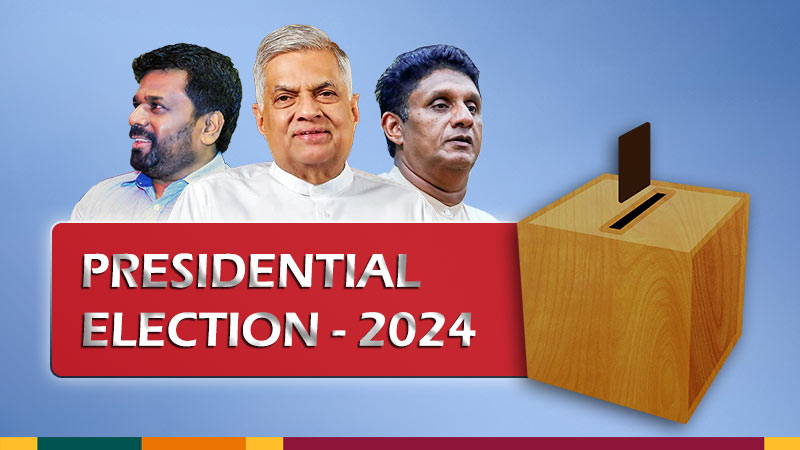– No female candidates this time
– Only three women have ever contested the presidential election
– Tally of presidential hopefuls reaches 40 in 2024
Colombo, August 15 (Daily Mirror) – As the 2024 presidential election approaches, Sri Lanka is once again facing a male-dominated race, with no female candidates stepping forward to contest.
Despite legal provisions for gender equality, no women have stepped forward as candidates this year, highlighting the persistent challenges women face in Sri Lankan politics.
Historically, only three women have ever contested a Sri Lankan presidential election. Srima Dissanayake, widow of the late Gamini Dissanayake, and Chandrika Bandaranaike Kumaratunga both ran in 1994, with Kumaratunga ultimately becoming the first female president of Sri Lanka. The third woman, academic Ajantha Perera, entered the fray in 2019, but failed to make a significant impact. Out of the trio, only Kumaratunga managed to shatter the glass ceiling, serving as president twice.
The 1994 presidential election was particularly notable for its female dominance, as it was the only election in Sri Lanka’s history where both main party candidates were women. The election came in the wake of tragedy, following the assassination of President Ranasinghe Premadasa in 1993 by the LTTE. His successor, Prime Minister D.B Wijetunga, opted not to run in the subsequent election, leading to the selection of Gamini Dissanayake as the United National Party’s candidate. However, Dissanayake’s assassination during the campaign led to his wife, Srima, stepping into the race, where she faced off against Kumaratunga.
This year, the landscape is different, with no women on the ballot, raising concerns about the state of gender equality in Sri Lankan politics.
Speaking to Daily Mirror, Former Election Commissioner Mahinda Deshapriya weighed in on the issue, attributing the lack of female candidates to the deeply entrenched male-dominated political culture.
“There are ample opportunities for women to take the lead in politics, but it has been an uphill battle due to male-dominant party politics, especially since 2005,” he remarked.
When asked about the role of the Election Commission in encouraging female participation, Deshapriya was candid in his response, stating that the Commission lacks the authority to promote gender equality in political candidacy.
Sri Lanka is a signatory to the UN Convention on the Elimination of All Forms of Discrimination Against Women, which recognizes the importance of women’s equal participation in politics. However, the country’s current political reality paints a starkly different picture. While the law provides for equal rights and opportunities, women continue to be treated as second-class citizens in practice. The patriarchal mindset that dominates Sri Lankan politics often relegates women to the sidelines, despite ongoing discussions about women’s rights on platforms such as International Women’s Day.
The statistics are telling: women’s representation in Sri Lanka’s Parliament stands at a mere 5.8%, with no representation in provincial councils and only 1.9% in local authorities.
As the 2024 presidential election approaches, the absence of female candidates is a stark reminder of the long road ahead for gender equality in Sri Lankan politics.
Meanwhile, the Election Commission has announced that 40 individuals have paid deposits to run in the 2024 presidential election. This includes 22 candidates from recognized political parties, 1 from an unrecognized party, and 17 independent candidates nominated by voters.
